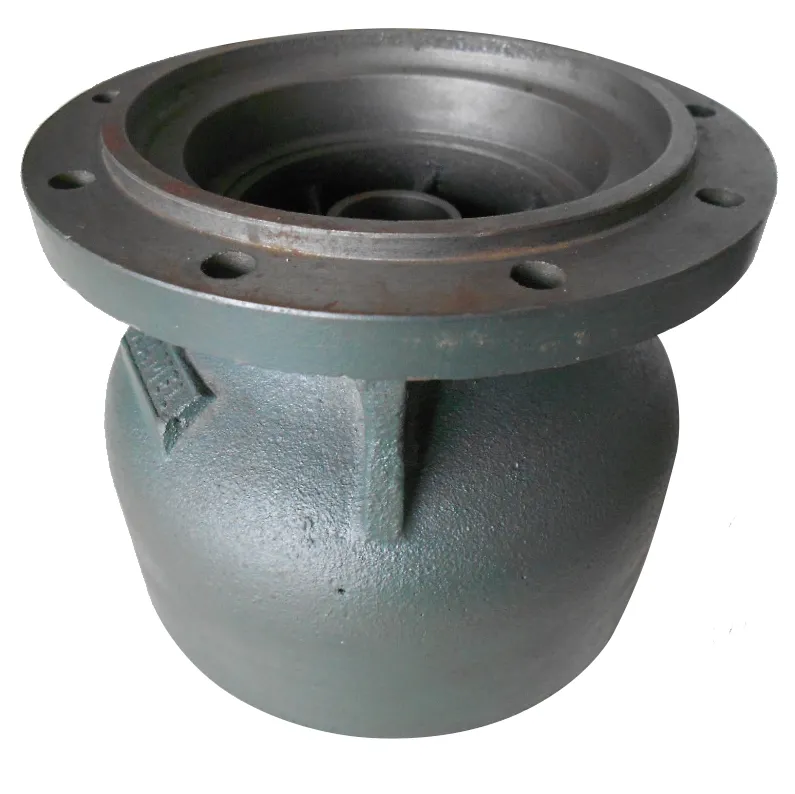Mobile:+86-311-808-126-83
Email:info@ydcastings.com
English
Understanding the Importance of Car Engine Oil Sumps for Optimal Vehicle Performance and Maintenance
Understanding the Car Engine Oil Sump
The engine is often considered the heart of a vehicle, and just like a heart, it needs the right environment and conditions to function optimally. One crucial component that helps maintain the engine's health is the oil sump. The oil sump, also known as the oil pan, plays a vital role in the lubrication and cooling of the engine, ensuring that it runs smoothly and efficiently.
What is the Oil Sump?
The oil sump is a storage reservoir located at the bottom of the engine. It serves as the area where the engine oil collects after it has circulated through the engine. The sump provides the necessary space for the oil to settle, and it is typically made from metal or composite materials designed to withstand the harsh environments of the engine’s operation.
Functions of the Oil Sump
1. Oil Storage The primary function of the oil sump is to act as a reservoir for the engine oil. It holds a sufficient volume of oil, which is essential for the lubrication of various engine components, including the crankshaft, camshaft, and bearings.
2. Cooling As the engine operates, it generates significant heat. The oil circulating through the engine not only lubricates but also helps in dissipating this heat. The sump plays a role in cooling the oil before it is recirculated back into the engine.
3. Filtering The oil sump often includes a sump screen or filter that helps to trap contaminants and debris, preventing them from circulating throughout the engine. This filtration process is crucial for prolonging the life of the engine and maintaining optimal performance.
car engine oil sump

4. Oil Pumping The oil sump is also integral to the functioning of the oil pump, which draws oil from the sump to circulate through the engine. The design and placement of the sump affect the oil pump's performance and efficiency.
Importance of Regular Maintenance
Maintaining the oil sump is critical for the overall health of the engine. Over time, the engine oil can break down and become contaminated with soot, dirt, and metal particles. Regular oil changes are essential in keeping the oil clean and ensuring that the sump performs its functions effectively.
Additionally, it’s important to regularly check for oil leaks. A damaged or corroded oil sump can lead to significant oil loss, resulting in inadequate lubrication and increased friction between engine components. This can lead to severe engine damage and costly repairs if left unaddressed.
The Evolution of Oil Sumps
In modern vehicles, the design of the oil sump has evolved significantly. Manufacturers are increasingly opting for lightweight and durable materials to reduce overall vehicle weight and enhance fuel efficiency. Some advanced designs include features like an integrated oil cooling system and baffles to minimize oil movement during cornering, ensuring consistent lubrication under dynamic driving conditions.
Conclusion
The oil sump plays a critical role in the overall performance and longevity of a car's engine. While it may seem like a simple component, its functions are vital for maintaining proper lubrication, cooling, and cleanliness of the engine oil. Regular maintenance, including oil changes and inspections for leaks, is essential for ensuring that the oil sump operates effectively. By understanding the importance of the oil sump, car owners can take proactive steps to protect their engine and enjoy a smooth and reliable driving experience. As technology continues to advance, the oil sump will likely see further innovations, helping to enhance engine performance and efficiency for future vehicles.
-
Premium Fan Housing & Motor Casing for Optimal AirflowNewsAug.31,2025
-
High-Performance Automobile Water Pump & Electric SolutionsNewsAug.30,2025
-
Expert Stainless Steel Casting | Precision & Durable Metal PartsNewsAug.29,2025
-
Precision Metal Castings: Aluminum, Stainless Steel & Die CastingNewsAug.28,2025
-
Superior Aluminum Castings in Automotive Engine PartsNewsAug.22,2025
-
Common Materials Used in Fan Housing ManufacturingNewsAug.22,2025











